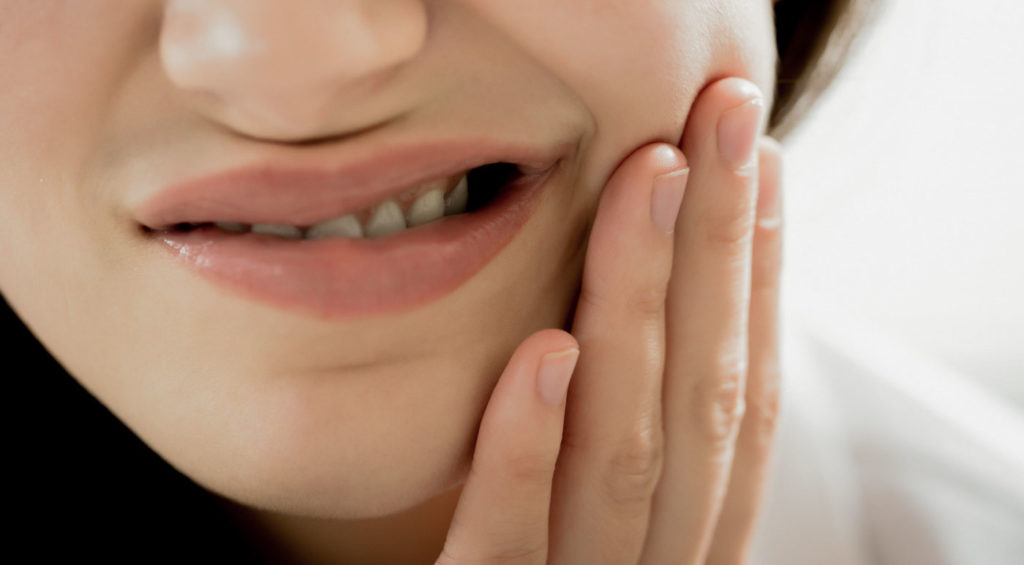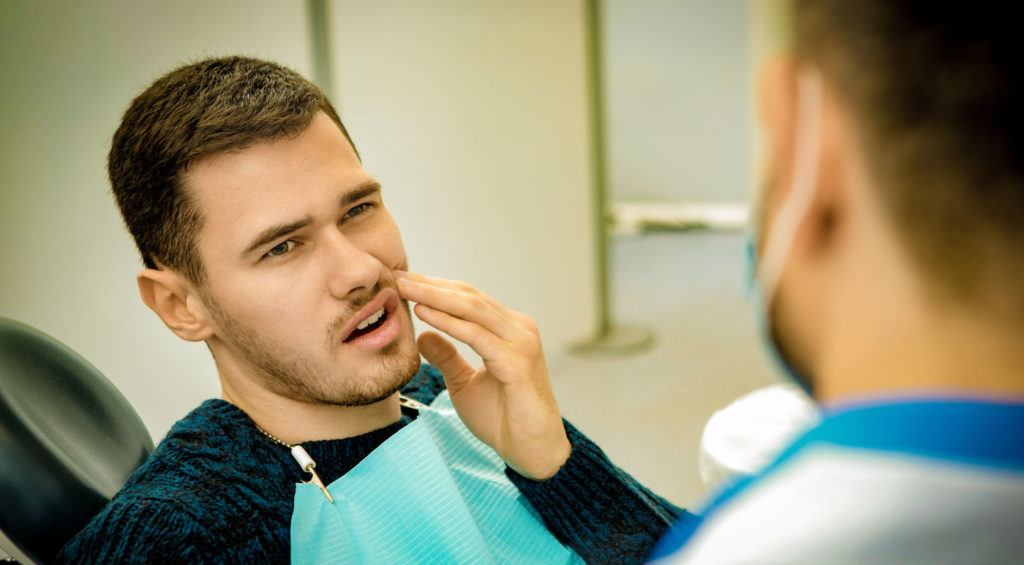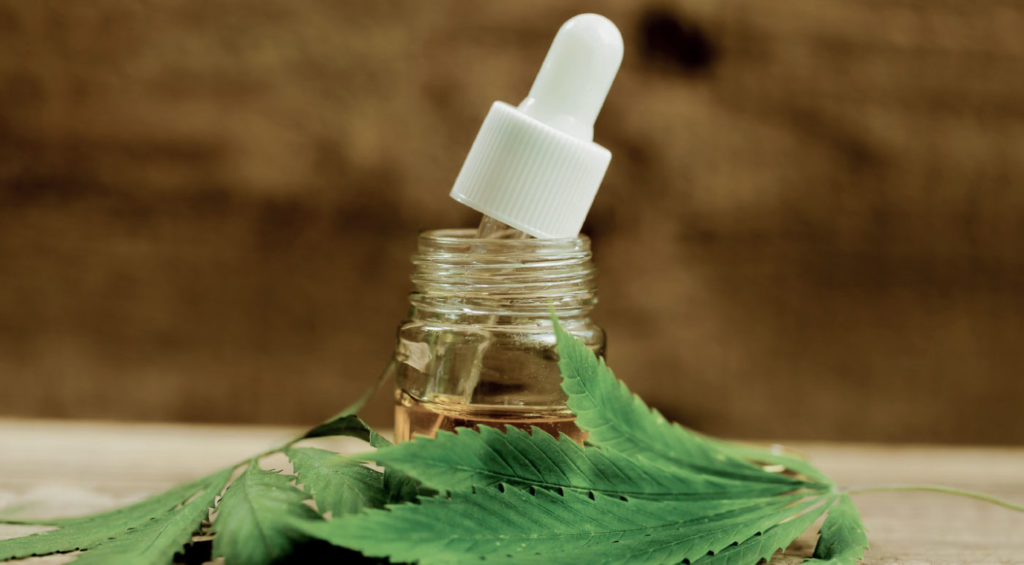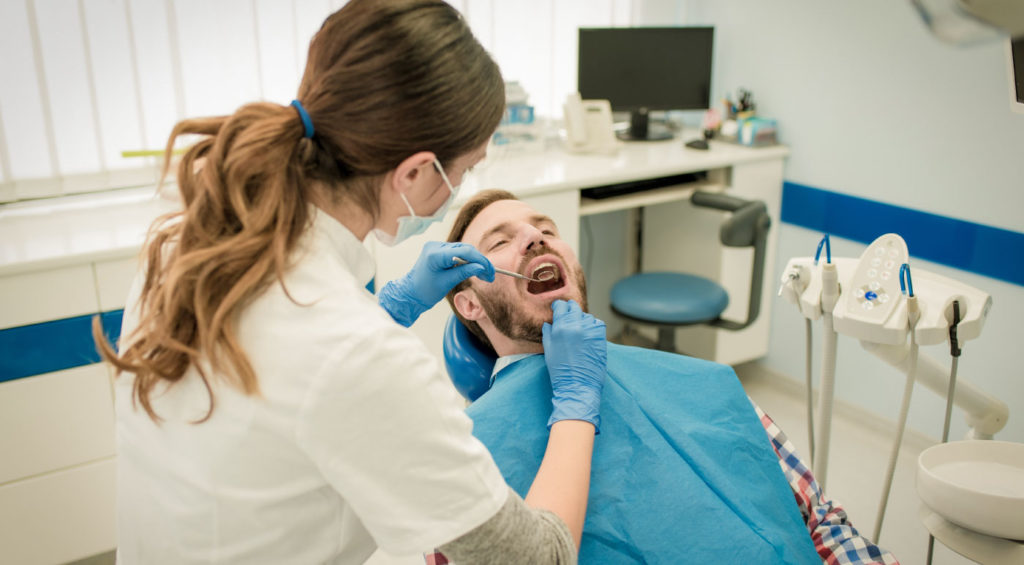
CBD is being used more and more for different kinds of pain. For example, we hear of it being used to address pain from cancer, but not often for less serious issues like toothaches. Is CBD effective for dental pain?
To understand the link between CBD and dental pain, we need to first examine what causes toothaches. Then we’ll be able to look at how CBD may be able to help.
Table of Contents
- What Causes Dental Pain?
- CBD and Dental Pain
- How Does CBD Help With Dental Pain?
- CBD and Dental Pain Research
- How to Use CBD for Dental Pain
- Does CBD Cause Dry Mouth?
- CBD for Dentist-Related Anxiety
- Conclusion
What Causes Dental Pain?
Most dental pain is caused by pulpitis, or an infection inside the tooth itself. The middle of the tooth is soft and pulpy, which is where the nerves and blood vessels are found. The nerves enable us to feel temperature and touch through our teeth. When the pulp is infected or damaged, we feel pain.
Infections, such as abscesses, are probably the biggest causes of toothaches. Abscesses affect both the gums and surrounding bones and can cause a lot of damage if left untreated.
We may also feel pain in a tooth that’s being referred from another area of the body, such as the sinuses or ears. So, dental pain may be caused by several factors:
- Tooth decay
- Gum disease
- Injury
- Tooth impaction
- Post-surgery
- Referred pain
CBD and Dental Pain

Can CBD help with any of this? Research has shown that compounds found in cannabis, like THC (tetrahydrocannabinol) and CBD (cannabidiol), help with inflammation and are antioxidants. These properties allow them to help ease many kinds of pain, and there’s no reason why dental pain should be any different. Besides its anti-inflammatory properties, CBD is also antibacterial and antiseptic.
Although there’s a lot of new research happening around CBD, not much has specifically focused on dentistry. However, reports based on personal experience seem to be mostly positive. Some people claim that CBD oil offered considerable relief from their dental pain, while others say it didn’t seem to make a difference one way or another.
How Does CBD Help With Dental Pain?
CBD interacts with the cannabinoid receptors, which are found mainly in the central nervous system. Some of these are linked to the immune system, and CBD helps lower its inflammatory response. This reduction of inflammation helps decrease the tooth pain.
However, It’s important to see a dentist who can treat the cause of the pain. Simply using CBD for your dental pain will not actually cure the problem.
CBD and Dental Pain Research
There has been very little research done specifically on CBD for dental pain. One study from the University of Uberaba in Brazil looked at induced periodontitis in rats and showed how CBD affects weak dental bones. When analyzing the alveolar bone loss, the researchers confirmed that the rats that had received CBD oil had less bone loss and fewer biochemical inflammatory agents.
Of course, it’s going to take a lot more research than just one study of rats before dental professionals accept and use CBD widely.
However, in the meantime, there’s been a lot of research done on CBD for relieving the pain and inflammation caused by other ailments, and there’s little evidence so far of harmful effects.
How to Use CBD for Dental Pain

Topical application of CBD seems to bring the most relief for other forms of pain, so it seems like this would be the case with dental pain, too.
Apply the CBD oil directly to the painful area in the mouth. Whether you use an oral spray, oil, or tincture, topical application like this is safe and fast-acting. Capsules are another option.
- Oil: CBD is dissolved in an inert oil and is applied using a dropper or a spray nozzle. You can use a dropper to add a drop of CBD oil to your toothbrush with your regular toothpaste. Alternatively, you can apply a drop to your finger and rub it directly onto the painful area and surrounding gums.
- Tincture: CBD is dissolved in alcohol. Tinctures are often put into a spray bottle, making them easy to apply.
- Infused Baking Soda: Put a little baking soda onto your damp toothbrush and add a drop of CBD oil. Use this to brush your teeth, concentrating particularly on the affected area.
- Capsule: Swallowing CBD capsules will not bring the immediate relief that direct application does, but they can be useful if the tooth is too sensitive to touch.
Does CBD Cause Dry Mouth?
One of the known side effects of CBD ingestion is a dry mouth. This is more likely when inhaling or swallowing CBD. The reason for this side effect is that CBD reacts with the cannabinoid receptors found in the salivary glands, causing saliva excretion to slow down. Obviously, this is an undesirable side effect, because we need saliva to help keep our teeth clean and prevent cavity formation.
The simple solution to dry mouth is to drink more water than usual, or use a mouthwash specifically manufactured to increase saliva production. Chewing gum containing xylitol is helpful as well. If you’re having a problem with a dry mouth, avoid alcohol, tea, and coffee, as these drinks will make the problem worse.
CBD for Dentist-Related Anxiety

Many people dislike going to the dentist, and some may become extremely anxious about it. Some dentists recommend that such patients take CBD oil before their visit, not only to calm the patient’s nervousness, but also speed up the healing process after a dental procedure. Continuing to take it after the visit will relieve the pain and inflammation caused by dental work. An added bonus is that CBD oil has very few side effects, unlike other anti-inflammatories and painkillers on the market.
Conclusion
It’s always best to check with your dentist before taking CBD oil or indeed any self-administered treatments to help with dental pain. Remember that while CBD may help relieve the symptoms of your pain, it will not fix the underlying problem. You may have been able to help your dental pain and inflammation at home, but only your dentist can diagnose and cure the underlying issue, such as a cavity.
